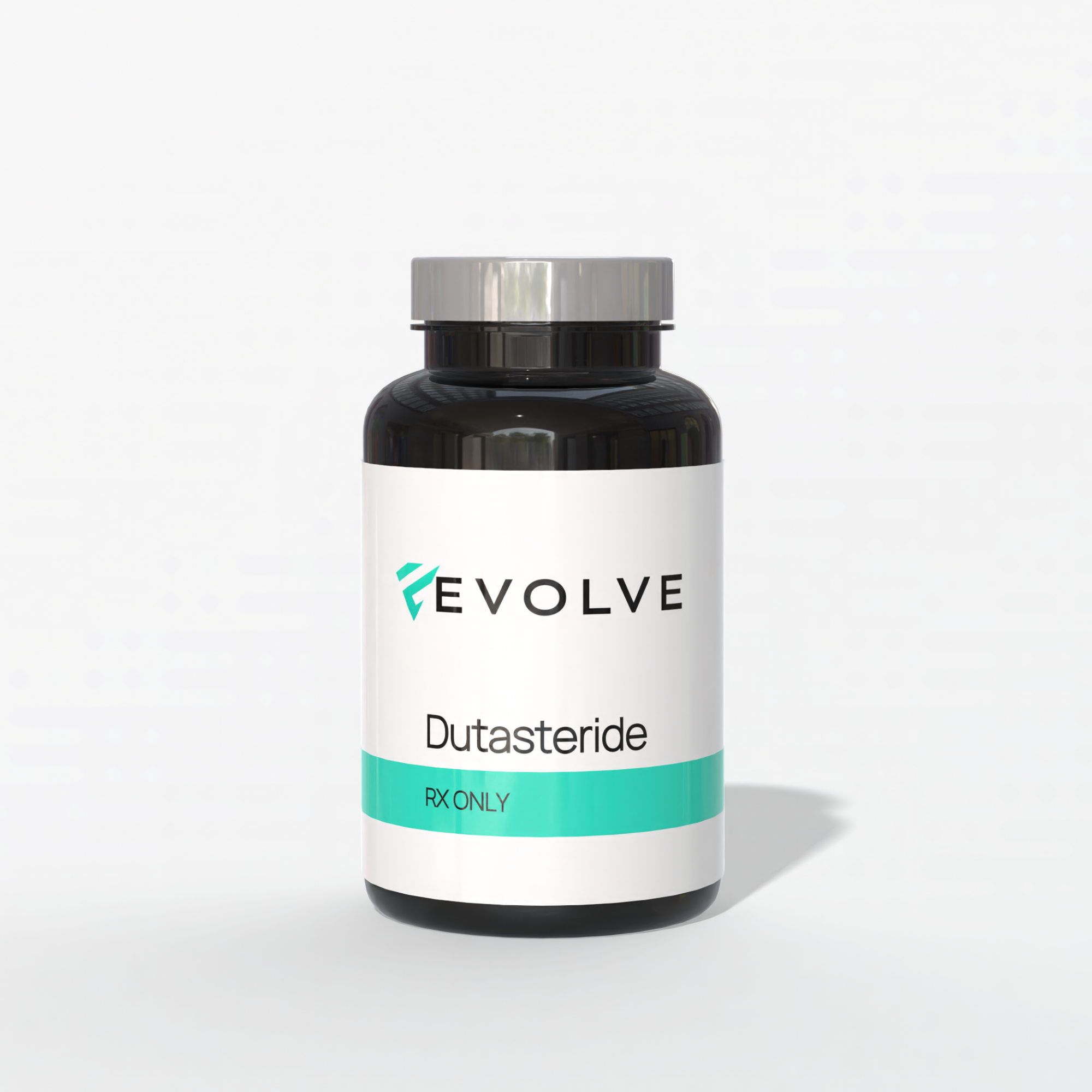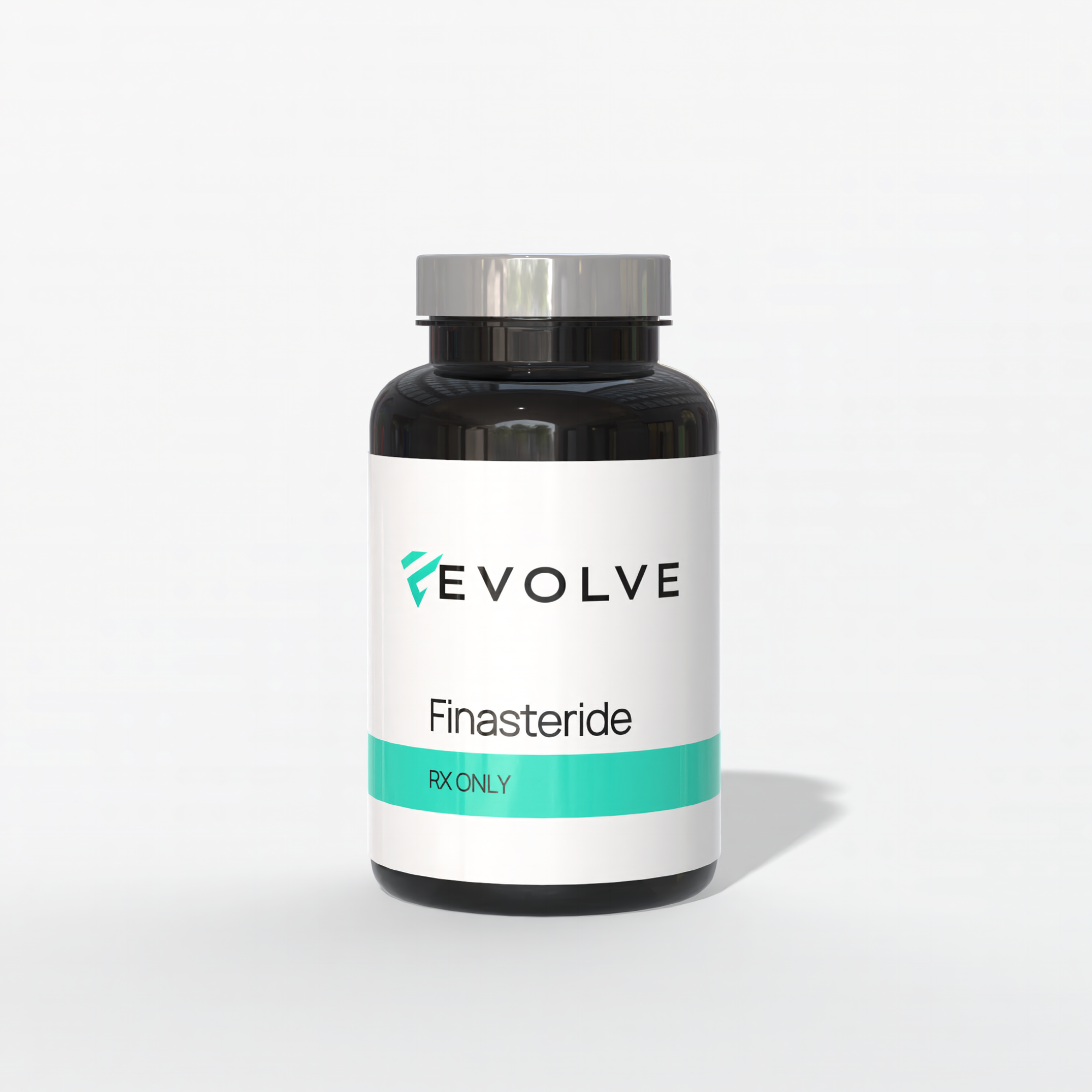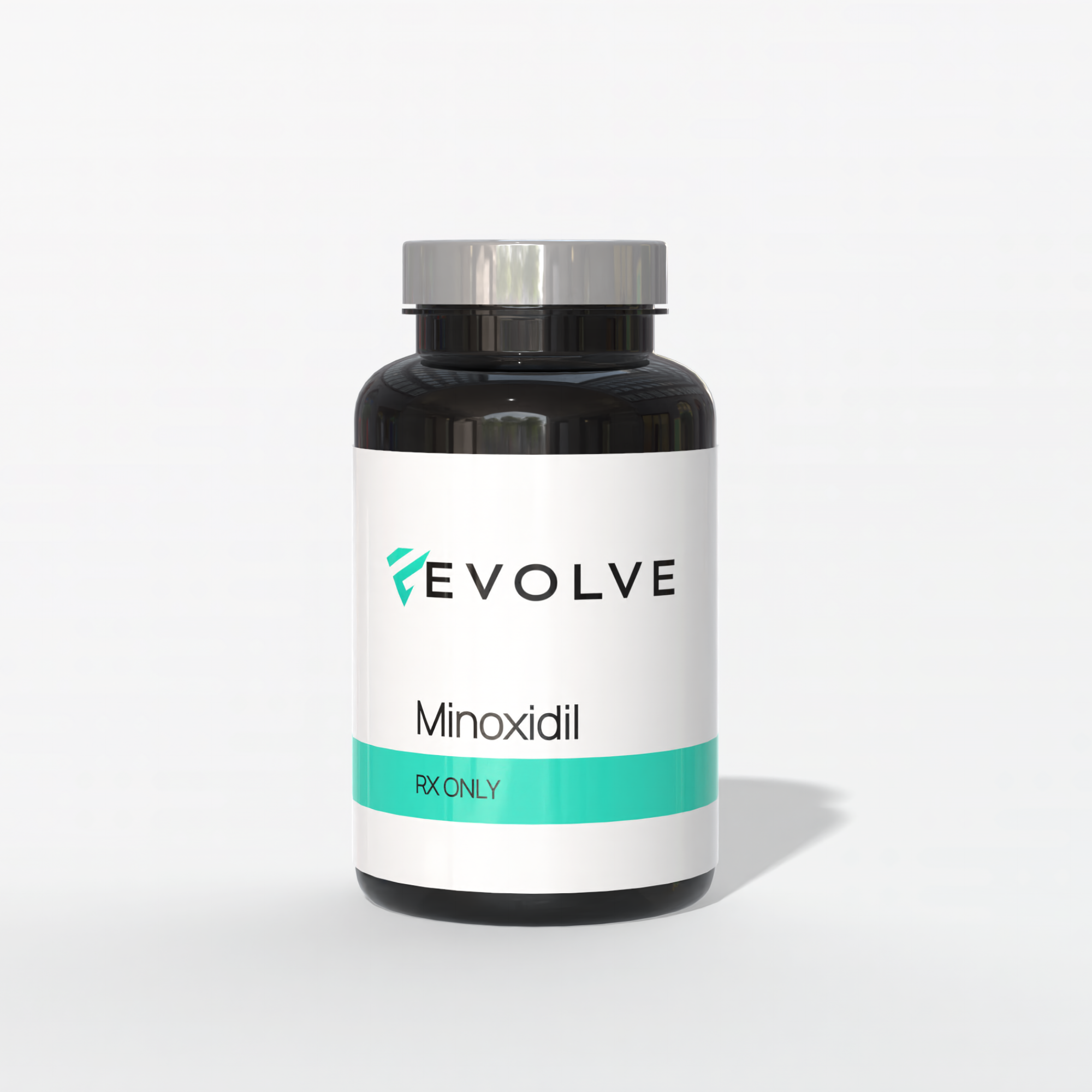Good Hair Days, Every day
Hair Restoration
Do you look in the mirror and see less hair than before? Get your hair back with treatments and expert support. You don’t have to settle for losing hair as you age!

Dutasteride
Regrow your hair and prevent hair loss with Dutasteride.

Finasteride
Regrow your hair and boost your confidence with Finasteride.

Minoxidil
Prevent hair loss with the help of Minoxidil.
Not Just Customized,
Truly Personalized
Your health is our priority. Our expert physicians and care specialists collaborate with you to create a plan of proven treatments personalized to your unique wellness goals.
What Patients Are Saying

"Never imagined I could feel so good at the age of 51. Thanks to the Evolve team for making it convenient, pleasant, and heartfelt!"
Mike W.

"Evolve has been a Godsend to me! Their program, their team, and the results have all been amazing. Highly recommend."
Stacy P.

"Been a patient for several years now. I've always felt that Evolve has not only my performance goals in mind, but also really understanding how to keep me healthy."
Zachary H.
FAQS
What causes male hair loss?
Male hair loss, or male pattern baldness, is primarily attributed to a combination of genetic and hormonal factors. The main factor is the influence of dihydrotestosterone (DHT), a derivative of testosterone. In individuals with a genetic predisposition, DHT can shrink hair follicles, leading to thinner and shorter hair until eventually, they stop producing hair altogether. Other factors, such as age and family history, contribute to the likelihood and pattern of male hair loss.
Can a man's hair grow back?
Hair regrowth in men depends on the cause of hair loss. For male pattern baldness, the most common cause, regrowth can be challenging. Certain medications like minoxidil or finasteride slow down hair loss and, in some cases, promote limited regrowth.
How do men stop hair loss?
There are several approaches to address and potentially slow down hair loss in men. Options include medications like minoxidil and finasteride, hair transplant surgery, laser therapy, maintaining a healthy lifestyle, and gentle scalp care. Consult a healthcare professional for personalized advice.
Is male hair loss permanent?
Male hair loss, particularly in cases of male pattern baldness, is often considered permanent. This type of hair loss is primarily influenced by genetic and hormonal factors, leading to the shrinking of hair follicles and the gradual cessation of hair growth. While certain treatments may slow down the process and, in some cases, promote limited regrowth, a complete reversal to the original state is generally challenging.
What treatments are offered for men’s hair loss?
Finasteride and Minoxidil are two treatments we offer to help you grow full, thicker hair.
Are Finasteride and Minoxidil safe for men’s hair loss?
Yes, both Finasteride and Minoxidil are generally safe for treating men’s hair loss. However, potential side effects of Finasteride should be discussed with a healthcare professional before use, and consistent application is crucial for Minoxidil to maintain results.
How do you fix thinning hair in women?
Fixing thinning hair in women involves a multifaceted approach. Consider maintaining a nutrient-rich diet, managing stress, and using gentle hair care products. Our treatments, including Minoxidil and Finasteride, are available in various forms such as serums, pills, or shampoo and conditioners.
What hormone causes hair loss in females?
Dihydrotestosterone (DHT), a derivative of testosterone, is a hormone that can contribute to hair loss in females. An excess of DHT can lead to the shrinking of hair follicles, resulting in thinner and shorter hair growth. Hormonal fluctuations, especially during conditions like polycystic ovary syndrome (PCOS) or menopause, can increase DHT levels and contribute to female hair loss.
Which vitamin is good for hair?
Biotin, a B-vitamin, is often associated with promoting hair health. It plays a role in the production of keratin, a protein essential for hair growth. Vitamins like Vitamin A, Vitamin E, and Vitamin D contribute to overall hair health. However, it’s important to maintain a balanced diet with various nutrients for optimal results.

